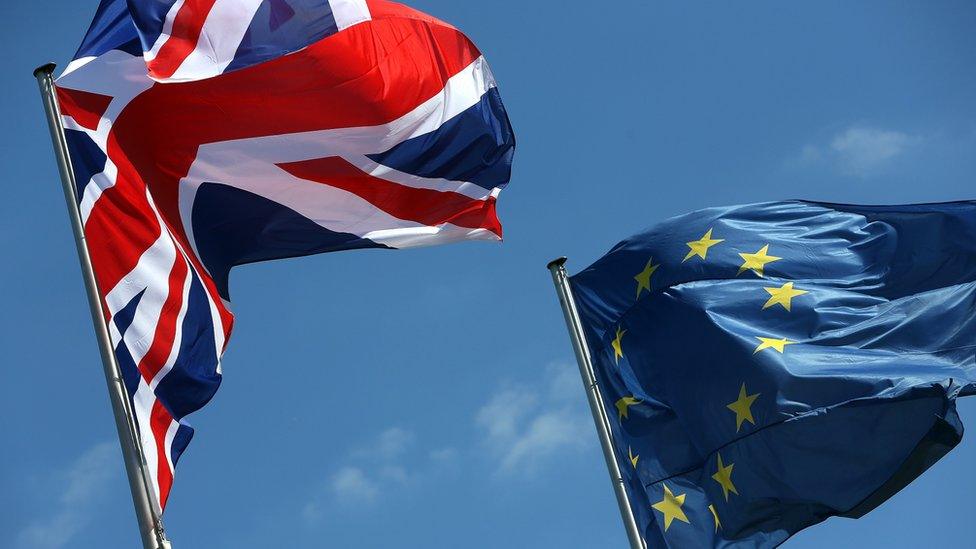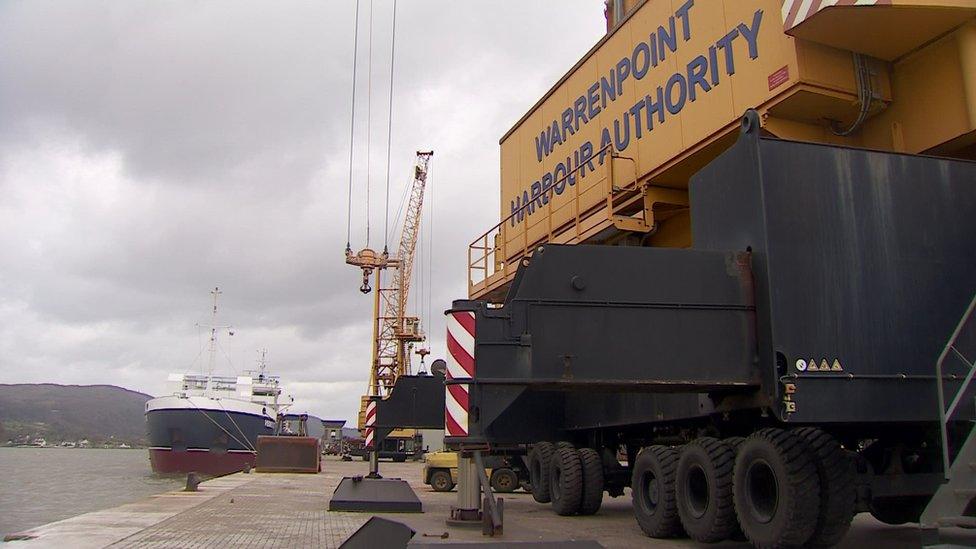Brexit: NI deadline is 'almost impossible' to meet
- Published
- comments

Boris Johnson says a deal can be agreed by the end of 2020
A think tank has cast doubt on whether the Northern Ireland part of the Brexit deal can be implemented by the end of 2020.
The Northern Ireland protocol covers new regulatory and customs arrangements between NI and Great Britain.
It is to be operational at the end of the one-year Brexit transition period.
After the UK leaves the EU on 31 January, it will enter an 11-month transition period, where it will largely follow EU rules but will not have any representation in the bloc's institutions.
This period will come to an end on 31 December and Mr Johnson has ruled out extending it if a deal on the future relationship between the UK and EU has not been agreed.
'Almost impossible'
At the end of the transition period, Northern Ireland will continue to follow EU rules on agricultural and manufactured goods, while the rest of the UK will not.

Warrenpoint - Northern Ireland's second largest port
Additionally, the whole of the UK will leave the EU's customs union but Northern Ireland will continue to enforce the EU's customs code at its ports.
This will mean some new checks and processes for goods moving between Northern Ireland and other parts of the UK.
The details of those processes have to be negotiated between the EU and UK and new systems for businesses will have to implemented.
The negotiations will take place through a body called the Joint Committee.
But the IfG points out that this committee is not yet up and running.
It adds: "It looks almost impossible to complete the practical changes, for government and business, by the end of the year."
'Legal action'
One of the difficulties it identifies is the extent to which new checks and processes will be required and they will also depend on the degree of regulatory alignment between the UK and the EU.
This will not become clear until a trade deal is concluded.
The IfG said this will "make it difficult for businesses and the UK government to know exactly what will be required of them before a deal is reached".
It warned that a failure to honour the deadline could see the EU taking legal action: "The responsibility for implementing the provisions falls entirely on the UK.
"Failure to deliver would mean the European Commission could start infringement proceedings and the UK could end up being fined by the ECJ."
- Published4 January 2020

